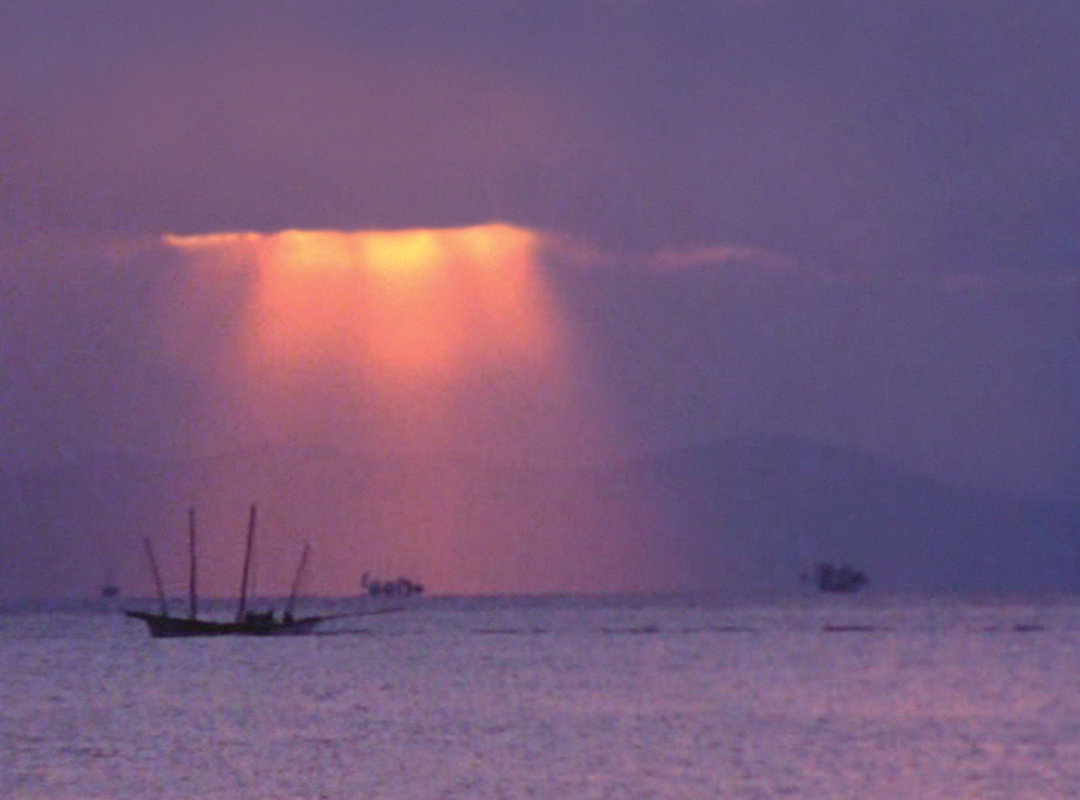05: The Shiranui Sea
In the framework of DISSENT !, an initiative of Courtisane, Auguste Orts and Argos.
Courtisane is een platform voor film en audiovisuele kunsten. In de vorm van een jaarlijks festival, filmvertoningen, gesprekken en publicaties onderzoeken we de relaties tussen beeld en wereld, esthetiek en politiek, experiment en engagement.
Courtisane is a platform for film and audiovisual arts. Through a yearly festival, film screenings, talks and publications, we research the relations between image and world, aesthetics and politics, experiment and engagement.
In the framework of DISSENT !, an initiative of Courtisane, Auguste Orts and Argos.

Tsuchimoto bleef films maken over de vissersgemeenschappen rond Minamata, maar begon tegelijkertijd zijn blik te richten op de zee en de dagdagelijkse realiteit van de mensen. De zee die de ziekte vervoerde, voorzag deze bevolking tegelijk in hun levensonderhoud, dat sinds generaties afhing van de traditionele visvangst. De film werd gemaakt na de eerste juridische overwinning van het volk tegen de staat en probeert een uitgebreid overzicht te brengen van de situatie in Minamata door de jaren heen. Er gaat een bijna onverklaarbare intensiteit en gratie uit van de manier waarop Tsuchimoto een portret schetst van deze mensen en hen filmt met empathie en respect. The Shiranui Sea is een lyrisch eerbetoon aan de menselijke veerkracht, een film die heelt en de zorgzame dimensie van Tsuchimoto’s cinema openbaart: een intieme, tijdsintensieve en gezamenlijke manier van filmmaken, doorvoeld en alert.
“Remarkably, this film is the first to give sustained attention to the great natural beauty of this ever-calm inland sea. Shot almost exclusively on brilliant sunny days, it introduces the viewer to a variety of traditional fishing methods, the ingenuity of which is almost as stunning as their setting. It exposes the fact that although fishing had stopped in Minamata Bay, it continued basically unchanged on the wider Shiranui Sea. The viewer is treated to shots of the fishermen preparing a feast of fish they have caught, and thanks to Tsuchimoto’s unerring empathy this comes across as less shortsighted than it might otherwise. For people whose lives and communities have been shaped around fishing and who have enjoyed a daily bounty of fresh fish since childhood, it is simply impossible to give it up. It is the substance of their work, the fabric that ties them to the world.” — Justin Jesty
Japanese spoken with English subtitles